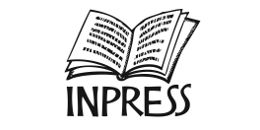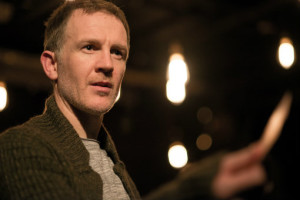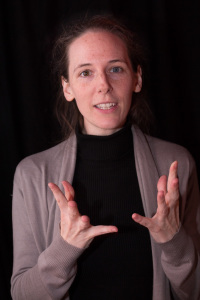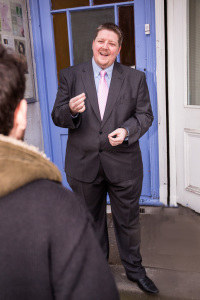More than £1 billion of taxpayers’ money was allocated to the creative arts in England earlier this month. That’s £340 million a year, for the three years 2015-2018, directly from our pockets. £270 million a year comes from our taxes; £70 million a year from our bets on the Lottery. Taxes for the arts – should this money be the first resort, the primary funding for people and organisations who wish to express themselves through performance of some kind?
The sum of money is patronage on a colossal scale. Not the patronage of emperors and popes, erecting monuments to themselves, not the patronage of aristocratic donors keeping poets, dramatists and painters for their own entertainment or to show off, not the patronage of businesses that wish to burnish their image; it’s the patronage of the people of England – more than £1 billion, funding 670 organisations of all shapes and sizes across the arts.
 Inpress has benefited
Inpress has benefited
Disclosure: I am Chairman of one of those organisations – Inpress Books Ltd, a national sales and distribution business, based in Newcastle, that supports 45 literary publishers who bring new and established writers, particularly poets, to commercial markets and direct to consumers. I am new to the world of Arts Council funding. After we have absorbed the fact that the Arts Council of England has awarded us (subject to final approval of business plans) funding, I ask myself and our board members, ‘what privileges, what responsibilities, does this money bring with it?’
The privilege of the taxpayer’s money
It is clearly a privilege to receive taxpayers’ money. It is not a right in the way that British society has decided that healthcare free at the point of delivery is a universal right. It is not a benefit, in the way that society has agreed that vulnerable citizens are granted benefits because their circumstances are difficult. It is not an incentive, in the way that society has decided that tax breaks for investment in innovative companies are likely to deliver long-term benefits to the country. It is a privilege that taxpayers have entrusted us with some of their money, through the agency of Arts Council England, so that we can support poets, fiction writers, other authors and their publishers in their ambitions to express and reflect the people we are and the world in which we live.
The responsibilities that follow
We obviously have to use and account for the money carefully and accurately. We have to try to ensure the work we do is good – whatever that may mean, as long as we define it, measure it, are consistent about it and always try to make it better. We have to respond to the goals that the Arts Council sets out. The exchange is not a hand-out, it’s a deal – we, the Arts Council, give you, Inpress, the taxpayers’ money; you agree to use that money actively to achieve what the Arts Council sets out to do. In particular, says the Arts Council, we want you to pursue excellence in artistic output and to enable as many people as possible to experience it.
How to measure up
There are pitfalls here – such goals can be described in innumerable ways, ways which might be virtually impossible to measure. But that’s also a very English advantage that allows some discretion at all layers within the Arts Council administrative system as to whether a particular use of the taxpayers’ money has been worth while. For organisations who have lost their funding, or had it reduced, the frustration that they cannot carry on in the same way as before, or that the beneficiaries of their services will find their lives diminished, means that the immediate discomfort and sadness is acute.
Funding as a bonus?
My sense is that Arts Council funding should be regarded as a bonus. Any organisation that offers work to the public lives and dies by whether the public will pay for it – whether people buy the books, a theatre gets bums on seats, exhibitions attract visitors and so on. If the public won’t pay for it, or pay for all of it, and if the people who make the work want to receive some sort of fee, wage, or living from it, then they have to find a patron. It is a fine thing that in the United Kingdom our politics encourages artistic expression to the extent of £1 billion of taxpayers’ money over three years – but should this money be the first resort of the artist, or the last?
The taxpayer decides
If the work is good enough, and the artist or ensemble is savvy enough about selling it and capable enough to create a sustainable business out of it, then enough people will buy it. If we at Inpress work hard enough at it, then should not the Arts Council funding be the extra money that goes to create further opportunity for our poets and other writers to reach a wider public? We are not entitled to ask the taxpayer to give us money simply to exist and do whatever we like. We may, I think, ask the taxpayer to fund us to go further, raise our game, reach more people who would not otherwise have the opportunity to choose to respond to what we offer. And the taxpayer will look at what we do and say yes or no.
 A Prayer has today received a 5 star review for its current run starring Niall Bishop and directed by David Macintosh Loumgair. The short piece written by Selma Dimitrijevic is currently being staged by Creative Structure at the famous Hen & Chickens Theatre venue in Islington, where it has already received strong feedback from critics and audience members alike.
A Prayer has today received a 5 star review for its current run starring Niall Bishop and directed by David Macintosh Loumgair. The short piece written by Selma Dimitrijevic is currently being staged by Creative Structure at the famous Hen & Chickens Theatre venue in Islington, where it has already received strong feedback from critics and audience members alike.





Recent Comments